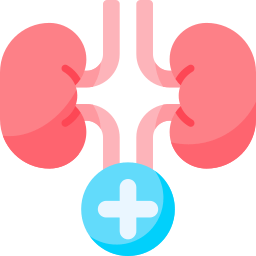Hematology
Overview
Hematology at Charnock Hospital specializes in the diagnosis and treatment of disorders related to blood and its components. Our dedicated team of hematologists provides comprehensive care for conditions such as acute anemia, malignant hematologic diseases including lymphoma and multiple myeloma, and performs essential procedures like bone marrow studies and blood transfusions. We are committed to delivering personalized care and advanced treatment options to improve patient outcomes.
Department Highlights

Blood Disorder Treatment
Expert care for anemia, bone marrow disorders, lymphoma, and multiple myeloma.

Advanced Chemotherapy Services
Customized chemotherapy treatments for leukemia and hematologic cancers.

Bone Marrow Studies
Precision diagnostics through bone marrow biopsy and analysis.

Blood Transfusion Services
Safe and efficient transfusions for patients with blood disorders.

Management of Lymphatic Disorders
Diagnosis and treatment of lymphatic system conditions.

Multidisciplinary Approach
Collaborative care across specialties for integrated treatment plans
Why We’re the Best Choice?
At our hematology department, we combine specialized expertise with advanced technologies to provide comprehensive care for a wide range of blood disorders.
Specialized Expertise
Our team specializes in advanced treatments for blood disorders, ensuring personalized care and effective outcomes.
State-of-the-Art Facilities
Equipped with modern technologies for precise diagnostics and treatments, enhancing patient care and comfort.
Compassionate Care
We prioritize patient well-being with a compassionate approach, focusing on comprehensive support throughout your treatment journey.
Our Expert Team
Testimonials
FAQ
What conditions does hematology treat?
Hematology focuses on disorders of the blood and bone marrow, including anemia, leukemia, lymphoma, and clotting disorders.
What diagnostic tests are performed in hematology?
Diagnostic tests include blood tests (CBC), bone marrow aspiration, genetic testing, and imaging studies like CT scans or ultrasound to diagnose and monitor blood disorders.
How often do I need to follow up with a hematologist?
The frequency of follow-up visits depends on your condition and treatment plan. Your hematologist will schedule follow-ups to monitor your progress and adjust treatment as necessary.
When should I see a hematologist?
You should consider seeing a hematologist if you experience symptoms like unexplained fatigue, frequent infections, abnormal bleeding, or persistent swollen lymph nodes.
Can hematology help with genetic blood disorders?
Yes, hematology specializes in genetic blood disorders such as sickle cell disease, hemophilia, and thalassemia, offering genetic counseling and personalized treatment plans.
What are the treatment options available for blood disorders?
Treatment may include medications, chemotherapy, bone marrow transplants, and supportive therapies to manage symptoms and improve quality of life.













